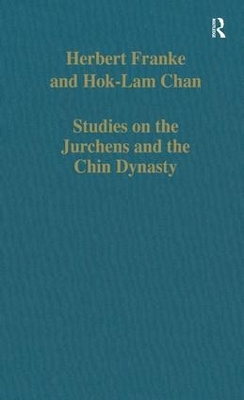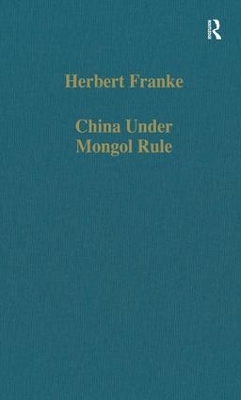Variorum Collected Studies
2 total works
The studies collected here derive in large part from the collaborative Chin history project, to which Professors Chan and Franke have made a massive contributuion. The Jurchens lived in northeastern Manchuria as hunters, fishers and farmers, until 1115 when they founded a dynastic state called Chin and went on to conquer northern China. Some of the studies here deal with the way of life of the pre-dynastic Jurchens, others with the law and institutions of the Chin state, and the treaties by which they sought to regulate their conflict with the Sung dynasty to the south. Taken together, these studies depict the varying mixture of Chinese and native traditions and customs that were adopted, presenting a detailed analysis of this multinational regime in medieval China.
From c. 1215 to 1368 China was part of the world empire of the Mongols, and during this period underwent many changes as the country was opened up to external influences - demographic, linguistic, religious, socio-economic. The studies by Herbert Franke collected here examine different aspects of this process, dealing with the polyethnicity of China under a dynasty of conquest and the cultural and political roles of non-Chinese, as well as the Chinese reaction, and antagonism to the situation. Of the articles, the first focus on source material, then on the position of the Mongol rulers, tracing their transformation from tribal chieftains into universal emperors, and gods. The following pieces look at cultural contacts, including the author's well-known survey of Sino-Western encounters, while the final ones use biographical studies to illuminate different aspects of Yüan China.

